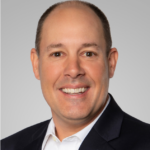
It is no secret that Americans are not saving enough for their retirement. Investment advisors suggest that individuals save between 10-15 percent of their income for retirement, but the overall average savings rate is well below that level. Most employers offer some type of retirement plan for their employees, but are these employers doing everything they can to help their employees progress towards retirement? Provisions such as auto enrollment and auto escalation have helped increase overall plan participation rates but have not closed the current savings rate gap that exists.
Employees who are unprepared for retirement can also create problems for employers. For example, employees who are unable to retire work longer, resulting in an aging workforce, higher medical costs and potential roadblocks to other high achieving team members who may leave the organization due to perceived lack of opportunity.
Retirement plan education is typically specific to the general plan offerings and provisions and is attended by currently active participants or those nearing retirement. As a result, those who are not participating or are participating at a very low level usually remain in the dark. Additionally, while companies spend endless amounts of time and money on their health insurance plans and wellness programs for their employees but tend to ignore employee financial wellness. Yet, financial stress is the number one reason for divorce, which can have the same adverse impact on productivity as health related issues.
The growing trend is to increase employee engagement by introducing financial wellness initiatives that include developing personal budgets and understanding personal financial concepts. Americans often do not know where to start when it comes to financial planning and tend to postpone taking responsibility for their own actions until the situation tumbles out of control. Expanding participant education to include topics like personal budgeting can encourage employees to take personal responsibility for their finances and empower them to understand that they need to do so in order to save more for retirement. Many times, plan trustees can offer financial planning education in tandem with retirement plan education by leveraging existing relationships with financial advisors and third party administrators. In addition, outside vendors offer financial wellness products such as SmartDollar, which assist organizations with the task of financial education.
Organizations should consider adopting a holistic approach to both financial and health wellness initiatives. Just like health and wellness initiatives, financial wellness initiatives can energize an employee base to take action and control their financial future as well as help organizations achieve their long-term objectives.
Roman Leshak, Jr. can be reached at Email or 215.441.4600.
You may also like:


